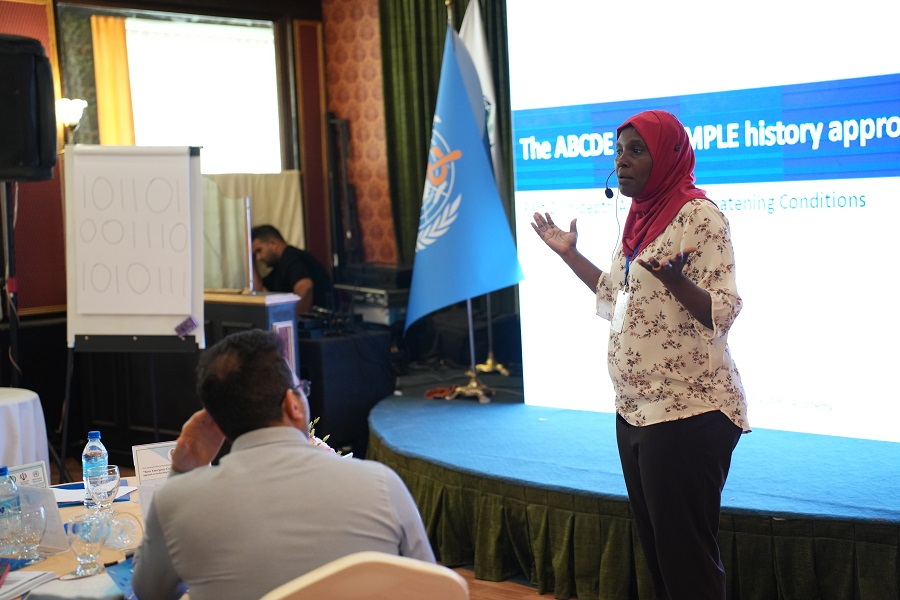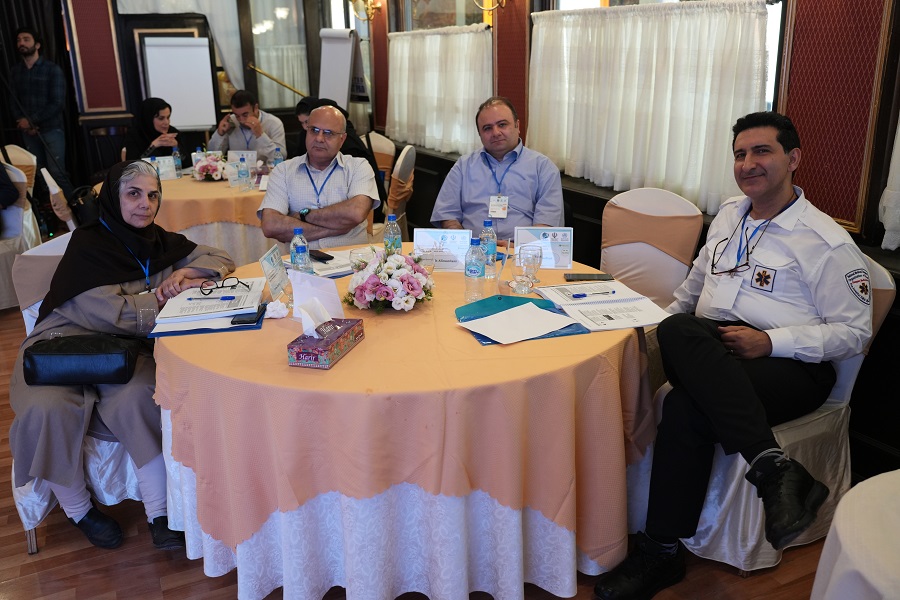
Tehran, 18 July 2023 – The World Health Organization (WHO), in collaboration with the Ministry of Health and Medical Education of the Islamic Republic of Iran, held a workshop on basic emergency care from 10 to 13 July 2023. Developed by WHO and the International Committee of the Red Cross, together with the International Federation for Emergency Medicine, to improve outcomes for acutely ill and injured individuals in emergency settings, the workshop was intended for frontline health care providers who manage acute illness and injury with limited resources.
The Islamic Republic of Iran is an emergency-prone country, which necessitates first-line responders to be equipped with basic skills. Well-developed emergency care systems provide timely recognition of urgent conditions, resuscitation and referral for severely ill patients, and the delivery of definitive care for a range of acute illnesses and injuries in both children and adults. The basic emergency care training course provided a systematic approach to the initial assessment and management of time-sensitive conditions, where early intervention saves lives.
The course was facilitated by experts in the field of emergency medicine from the WHO Regional Office for the Eastern Mediterranean and WHO headquarters. Twenty-three emergency medicine specialists, general practitioners, nurses and paramedics from 10 provinces attended the course, which aimed to prepare them to deal with a variety of critical illnesses, with a focus on trauma, breathing, shock and altered mental status. The main expected outcome of the workshop was for participants to be able to provide a systematic initial approach to managing acute, potentially life-threatening conditions, even before a diagnosis is made. The course methodology included lectures, group discussions, paperwork and hands-on skill training. The participants engaged in activities designed to develop their skills in rapid assessment and interventions for threats to life using the ABCDE approach (A: Airway, B: Breathing, C: Circulation, D: Disability, E: Exposure) and SAMPLE history (S: Signs and symptoms, A: Allergies, M: Medications, P: Past medical history, L: Last oral intake, E: Events surrounding illness).
 A wide range of health care professionals including emergency medicine specialists, general practitioners, nurses and paramedics from 10 provinces participated in the workshop
A wide range of health care professionals including emergency medicine specialists, general practitioners, nurses and paramedics from 10 provinces participated in the workshop
The participants were evaluated before and after the workshop, and there was a significant improvement in scores in the post-workshop test. The feedback received from participants highlighted the high quality of the workshop and the changes the workshop made to their approach to ill patients and the injured. The facilitators also expressed their excitement about the active participation and knowledge of the attendees.
The next step will be planning for a training of trainers course in the near future, through which participants will learn how to transfer the knowledge and skills they have gained during the course to others through cascade training.


